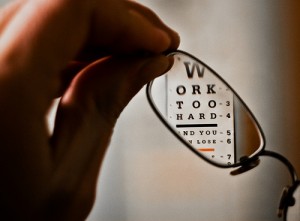
photo by ario_j
It’s been almost three months since I joined a gym. Initially, I was concerned about the 12-month commitment. If my enthusiasm didn’t stick, I might end up stuck with a monthly fee for a gym membership that I wasn’t using.
The good news is, that hasn’t happened. When going to the gym after work became too much of a struggle, I switched to a morning schedule. I’m tired earlier in the evening now, but I love getting my workout out of the way first thing in the morning. I start the day with extra energy, and I don’t have to dread working out after a long day at the office.
This is the most consistent I’ve ever been with a workout regimen. I typically controlled my weight through portion control and healthy eating, but my fitness habits have always been lacking. This is the first time in my life that I’ve worked out every single day for longer than a couple weeks.
I can’t help but wonder if it’s directly related to the $20 being withdrawn from my bank account every month. In the past, I’ve worked out for free either outdoors, in a campus gym, or in an apartment complex gym. This is the first time I’ve paid a monthly fee to work out. Every other time I started out with a lot of enthusiasm, but eventually I started going fewer times per week until I finally stopped going at all.
This time I’ve made it a point to work the gym into my schedule every day. I know I’m paying for it whether I use it or not, and I can’t bear the thought of wasting that money every month.
Tony offered a different theory. My frugality and financial organization have made me more goal-oriented and regimented, he says, which in turn have led me to follow those same principles when it comes to fitness.
I don’t recommend joining a gym just to motivate yourself to work out. If you’re not truly committed from the beginning, all the gym membership will do is add to your expenses. But if you’re like me — strict about money and lax about fitness — and you’re truly committed to a healthier lifestyle, paying for your workouts might just strengthen your resolve.



